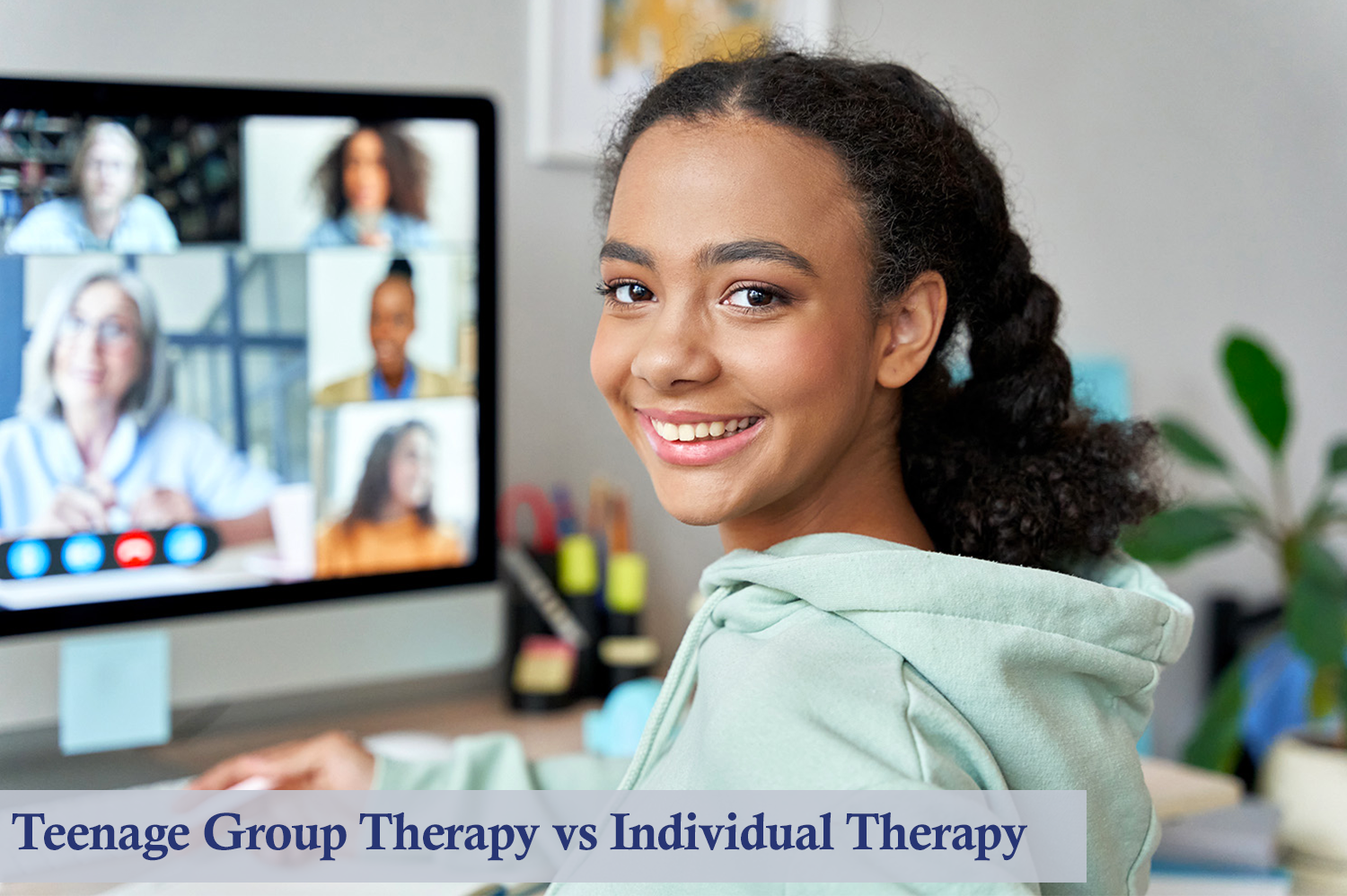If you’re looking to get your teen into therapy sessions, you may be deciding if teenage group therapy or individual therapy is the right choice. Let’s go over their differences and the advantages each one has.
What is Individual Therapy for Teens?
Individual therapy is often what comes to people’s minds when thinking of therapy services. This is when a trained professional helps a single teen work through personal challenges they have been facing. This is conducted in a private setting and is tailored to each teen’s needs. This treatment doesn’t necessarily make problems disappear, but it equips teens with the tools needed to cope with them more appropriately.
There are a variety of different types of individual therapy, like cognitive-behavioral therapy, dialectal behavior therapy, and motivational interviewing. This way, you can choose the right approach for your needs.
Advantages of Individual Therapy
Individual therapy for your teen is a great option for getting them help. Some of the advantages of individual therapy include:
Confidentiality
The main benefit of individual therapy is the level of confidentiality that comes with it. Sometimes, a teen might not want others to know what they’re going through. In this setting, a teen can share their problems with the therapist and rest easy knowing that nothing will be shared with anyone else outside of therapy sessions.
One-on-One Attention
Individual sessions can enable the therapist to solely work with a teen and put all their energy and attention into getting them the help they need. It also helps to create a worry-free zone and facilitates a safe space that lets a teen explore their feelings, thoughts, and life experiences without the fear of other people’s judgments.
Customized Treatment
This type of therapy is also great if you’re looking for personalized therapy sessions. If a teen is uncertain about coping or feeling helpless about a situation, individual therapy can be the perfect solution. The therapist will be able to formulate a personalized treatment based on their concerns and needs.
Flexible Scheduling
Individual therapy is more helpful to those who are busier. Sessions can be arranged when it’s most conducive for a teen’s busy schedule. They can also be arranged rather quickly if needed.
What is Group Therapy for Teens?
Teenage group therapy is when one or more therapists work with several teens at the same time. Teens can expect to share their feelings, experiences, and behaviors with those struggling with similar challenges. Groups can be as small as three or four but often involve around eight to 12 people. Usually, groups will meet once or twice a week (maybe more) for an hour or two.
There are many different types of group therapy, but the most common types include:
- Cognitive behavioral groups – this focuses on identifying and changing problematic thinking, emotional responses, and behaviors.
- Interpersonal groups – this focuses on interpersonal relationships and social interactions.
- Psychoeducational groups – focuses on educating and informing clients about their disorders and ways of coping, as well as the consequences of those behaviors.
- Skills development groups – focuses on improving skills based on the needs of the group.
- Support groups – as the name suggests, this focuses on providing support and care for members.
Advantages of Group Therapy
Group therapy is another great option for teens that comes with advantages. These advantages include:
Providing Support
Being in a group setting means providing much-needed support. Teens can see that others are going through the same thing, which can help them feel less alone. Whether dealing with panic attacks, depression, or another mental health challenge, it can provide a sense of relief to hear people going through the same thing.
Role Modeling
Another benefit is group members can serve as role models for other members of the group. Teens can observe someone coping with a problem successfully and not only use that person as a model but see that there is hope for improvement. As each person progresses, they can serve as a role model and support figure for others. This can help the group feel successful and accomplished.
Promoting Social Skills
The nature of group therapy means learning how to navigate situations and relationships with others. By engaging and re-engaging with others, teens can practice being in various social situations. For mental health challenges like social anxiety and depression, group therapy can be vital in breaking the cycle of withdrawing to a comfort zone and instead help build confidence in social interactions.
Practicing Using Their Voice
For some teens, it can be hard to find their voice and even harder to use it. Group sessions are the perfect place to try using their voice. The safe place found in group sessions means teens can try using their voice in an unfiltered manner without some of the stress or anxiety they may experience normally.

Let Equity Associates provide the help your teen needs.
Teen Therapy Services Make a Difference
Whether teenage group therapy or individual therapy, teen therapy services are necessary and help to make a difference. Teens go through many changes, and that often includes developing mental health challenges. 50% of mental challenges develop by age 14. By utilizing teenage group therapy or individual therapy, teens will be given the tools needed to handle their mental health challenges, which will benefit them well into adulthood.
We’d love to be able to provide the help your teen needs. At Equity Associates, our trained and experienced therapists help teens get the treatment they need. Our therapy services are highly personalized for one’s unique needs, and with our usage of telemental health, those seeking treatment can do so in the comfort of their home. We’re based in Ridgway, Colorado but can help those anywhere in the state. No matter what, we’re always here to support those who need us.






